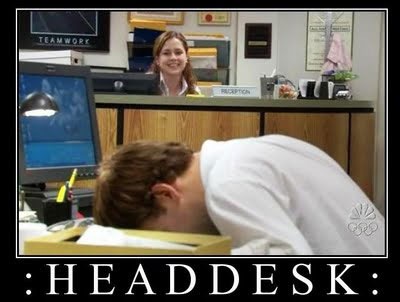It's guest Monday and today Sierra Godfrey is schooling us on the often confusing waters of deciding what you want your web home to be--website, blog, self-hosted, free, etc. She's going to give us some practical tips to make it easier for us to know which direction is best for us.
BLOG TOUR ALERT: Today I'm at Sexy Lady talking about From Blank Page to Published Book - How CRASH INTO YOU Came To Be
Take it away, Sierra...
Roni has written a lot on the subject of author websites as she's emerged out of the chrysalis of unpublished writer with a strong blog into the butterfly of published author with a real need for a website that accomplishes many things. I've written about this at length, too, especially for unpublished writers. A few weeks ago, Anne Allen had a post about whether you need a website at all. Here are some answers to some of the more common concerns and questions we've gotten: 1. What's the difference between a blog and a website? Websites are more for information purposes. They don't always nor automatically feature mechanisms for you to interact. For published authors, they're perfect for marketing books. Of course, you can market your books just fine on your blog, but if you do only that, people will stop coming around--because you're no longer having a conversation with them. Some published authors have asked us: Do I really need a blog? The answer is no, of course not. But if you want to provide an easy to way to converse with readers and writers, then yes. 2. What's the advantage of paid services over free ones?
When I'm not writing, I work as a freelance graphic designer. I design brochures, logos, and Wordpress-based websites with my build partner, fellow writer Mike Chen. We opened shop on our joint project, Atmosphere Websites, last summer. In that time, we've had a ton of questions about blogs vs. websites. And funnily enough, authors seem to be the ones asking the questions.
Put very simply, blogs are for social interaction. They're for engaging with others. It's okay if you want to use yours as a soapbox, but remember that the basic function of blogs is for people to comment and interact with you.
First, here's the breakdown:
run by Blogger and hosted by Blogger.
Server issues
Why on earth would you use your own server space and pay all associated hosting fees when you could just use Blogger or Wordpress.com's server? The simple answer is that if they go down, so you do.
Custom Design
One of the questions we get a lot is why anyone should pay for website design when there are so many free templates out there--for both blogs and websites. And it's true, there are free templates and some of them are really great looking. I personally maintain a blog through Blogger's free service, although I've tricked the heck out of it so it looks exactly how I want it to look. (I address why I use the free Blogger site rather than my own Wordpress site below.) Here are a few reasons for both:
With a paid web host, you:
Free services are great because:
Domain names
"But I can get my own domain name on my free Blogger blog. Why do I need to pay for a hosting package?" You're paying for that domain name--and still not owning your blog space, and you're not getting extras like your@yourname.com email addresses, which you usually get for free with paid hosting packages. And, if you don't have a website, there's no room to add one later. But if what you want right now is a blog atwww.yourname.com. then the domain name option through Blogger or Wordpress.com is a good one.
3. So why are you using Blogger?
A few weeks ago, I was telling someone about the advantages of getting your own server space and domain, and installing Wordpress on it, and paying someone to do a custom design. And then they asked me, "So how come you're using a free Blogger blog?"
When I move my blog over to my own website, I'll get a better blog publishing interface (in my opinion; Wordpress has many more blog-friendly features than Blogger does even with Blogger's new interface, which strangely mirrors Wordpress's now). And all the posts I've written for the past three years will import right over, and the chance of losing them all to a crash of Blogger's doing will be minimized.
In the end...
Using a free blog or website vs. a paid, custom-designed one is a personal choice. Generally, you're going to want more space, freedom, and control when you're a published author, which are things a free service can't supply as well. And there's no question--a yourname.com site looks professional.
About Sierra:
“...a sexy, sizzling tale that is sure to have readers begging for more!" –Jo Davis, author of I SPY A DARK OBSESSION




